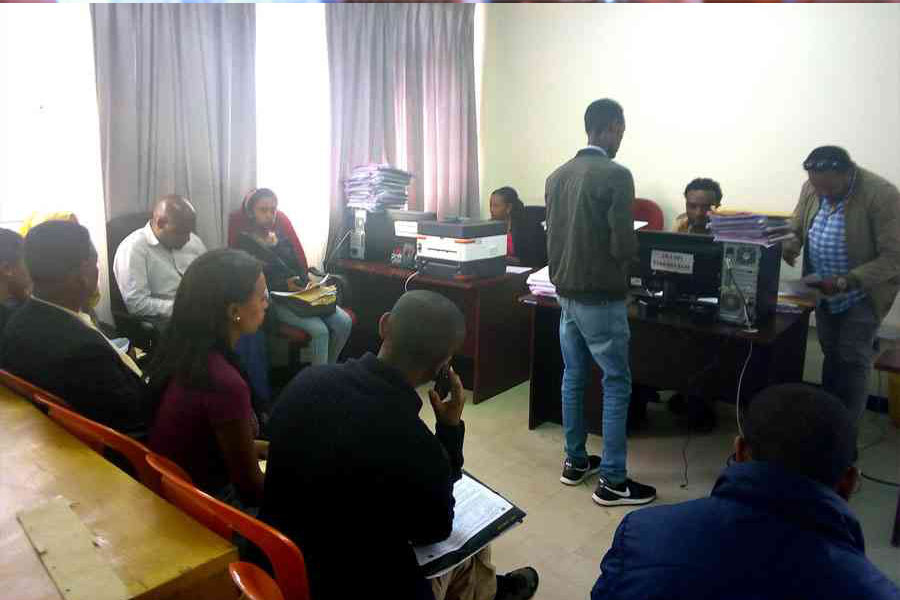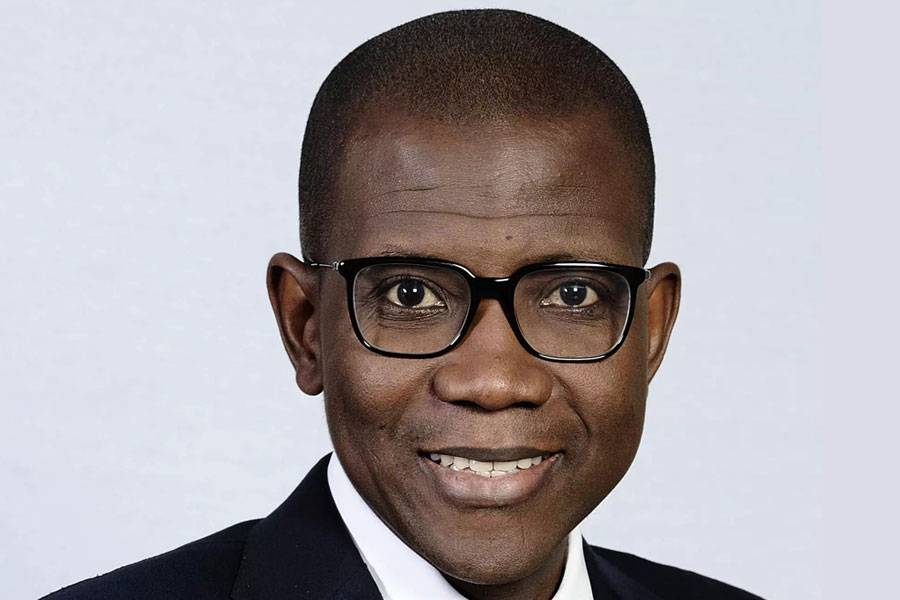
Agenda | Dec 23,2023
Jan 21 , 2023
By Asseged G. Medhin
The Ethiopian financial sector is leaning towards new products. It is not by choice, strategic breakthrough, using technology, or farsighted leadership skill but by the change in the global world and the pace that left no room to entertain traditionally.
When we refer to our strategic pillars, golden opportunity flies as technology amasses the usual way of accepting business proposals. Everything changes. Today is not yesterday's today, and tomorrow will not be like those tomorrows we knew in the past. There is not one best way of doing things, as the global pace demands dynamic ways with existing optional strategies.
The best strategy of our century is that which will decrease aspects of risks and benefits. Multiple new and diversified threats emerged as we struggled to manage challenges and mitigate observed and justified risks. We are in the perpetual drive for changes that urged leaders to open their eyes endlessly and observe the business environment differently.
The current financial industry allows the existing "never mind" dynamism to dive in before the accurate testimonial return to shareholders and the board of directors on the summarised financial statements. I strictly argued that a traditional company with change-resistant forces across the institute, from the gatekeeper to the boards, will reap what they sowed during the year.
Some financers are branded using their network. The composition of leaders is based on the network they set, and the centrepiece of strategy is mainly on the regional market to their network belonging. I am not opposing expansion to the regional market, but it should be knowledge-based leadership.
Some insurers are not exempted from ethical operations. Like finances, they are also operated based on their network from the institute's gate to the board of directors.
Can we exist with the same level of understanding and block the idea of liberalisation backbiting those who promote professionalism more than their usual and obnoxious business process? This is a question that needs an answer.
With this mentality and leadership, we only read the word 'international' in the financial statement book. But, I go for transformational leadership in all financial institutes before mergers, acquisitions and strategic alliances.
Technology and global forces enlightened customers' minds to resist the traditional business process and financial institutes with skyrocketing buildings filled with inefficiencies. Today's customers seek simplicity and knowledge-based management.
Network-free business leaders are successful. They build long-term relationships with customers, suppliers, employees, and shareholders. They make farsighted investments to support and develop their core competencies. They act quickly to ensure that short-term obstacles do not disrupt their long-term strategies. In conceiving and implementing corporate strategy, managers have drawn on the skills of specialists, from marketers to production experts.
There is a need to re-engineer the financial sector. In most neighbouring countries and the Middle East, a small but growing number of senior managers have found that financial engineering practitioners can help them achieve their companies' strategic objectives. Like other technological breakthroughs, such as cheap computing power, it can reduce the cost of existing activities and make the development of new products, services, and markets possible.
The notion is that financial engineering might advance a company's strategic goals by using derivatives to manage risk and create customized financial instruments.
Recognizing new technologies' pitfalls but failing to appreciate their competitive value can be shortsighted and ultimately hazardous. Any technology has its drawback initially, yet it is the best we have. Insurances policies, claims management processes, loan processing management, allocation of money, organization setups, formation of capital, and manpower development must be technologically driven.
Financial institutes in Ethiopia must have financial engineering now.
Forward-looking managers must keep well-informed of their rivals' successful uses of promising breakthroughs like financial engineering. Unfortunately, those are the stories that remain untold. The financial sector could not solve the nation's problem. Neither the monetary nor fiscal policy of the nation fundamentally addresses categorical challenges. The ongoing reform is supported politically than a farsighted, strategic financial engineering.
The regulatory body and those crafting the nation's economic policy should stick and bring a solution once they choose a short- or long-term remedy. If not, the wrong guide decision has no end tail. The near past government's decision to manage the impact of inflation and shortage of hard currency turns out to be more adverse than before. Things are aggravated, and the government can no longer control the pressure.
The notion is clear; many changes have been underway in the past half-decade. Knowledge-based and institutionally framed changes are visible and progressive. Financial institutions are not the only ones demanded to do so. Regardless of exhibited growth, the economy lacks reengineering free from political models.
The country has faced several risks, including political unrest and financial and environmental hazards. A clear risk map has to be rolled out and integrated with economic models. Similarly, every institute should design its own risk map. The all-rounded reengineering in other sectors, including the regulatory body, will alleviate the existing problems.
PUBLISHED ON
Jan 21,2023 [ VOL
23 , NO
1186]


Agenda | Dec 23,2023

Commentaries | Sep 10,2022

Fortune News | Mar 17,2021

Fortune News | Mar 09,2024

Radar | Dec 04,2022

Fortune News | Dec 29,2018

Viewpoints | Mar 01,2024

Radar | Jan 31,2021

Commentaries | Nov 04,2023

Radar | Feb 24,2024

My Opinion | 132105 Views | Aug 14,2021

My Opinion | 128507 Views | Aug 21,2021

My Opinion | 126435 Views | Sep 10,2021

My Opinion | 124046 Views | Aug 07,2021





Dec 22 , 2024 . By TIZITA SHEWAFERAW
Charged with transforming colossal state-owned enterprises into modern and competitiv...

Aug 18 , 2024 . By AKSAH ITALO
Although predictable Yonas Zerihun's job in the ride-hailing service is not immune to...

Jul 28 , 2024 . By TIZITA SHEWAFERAW
Unhabitual, perhaps too many, Samuel Gebreyohannes, 38, used to occasionally enjoy a couple of beers at breakfast. However, he recently swit...

Jul 13 , 2024 . By AKSAH ITALO
Investors who rely on tractors, trucks, and field vehicles for commuting, transporting commodities, and f...

Jul 12 , 2025
Political leaders and their policy advisors often promise great leaps forward, yet th...

Jul 5 , 2025
Six years ago, Ethiopia was the darling of international liberal commentators. A year...

Jun 28 , 2025
Meseret Damtie, the assertive auditor general, has never been shy about naming names...

Jun 21 , 2025
A well-worn adage says, “Budget is not destiny, but it is direction.” Examining t...

Jul 13 , 2025 . By YITBAREK GETACHEW
The Addis Abeba City Revenue Bureau has introduced a new directive set to reshape how...

Jul 13 , 2025 . By BEZAWIT HULUAGER
Addis Abeba has approved a record 350 billion Br budget for the 2025/26 fiscal year,...

Jul 13 , 2025 . By RUTH BERHANU
The Addis Abeba Revenue Bureau has scrapped a value-added tax (VAT) on unprocessed ve...

Jul 13 , 2025 . By NAHOM AYELE
Federal lawmakers have finally brought closure to a protracted and contentious tax de...